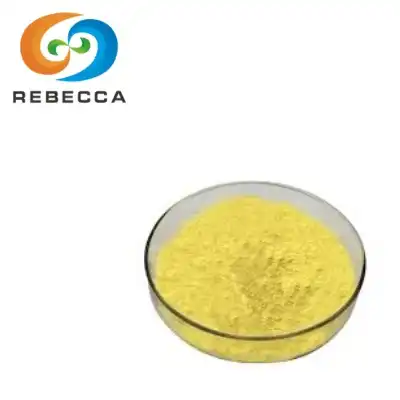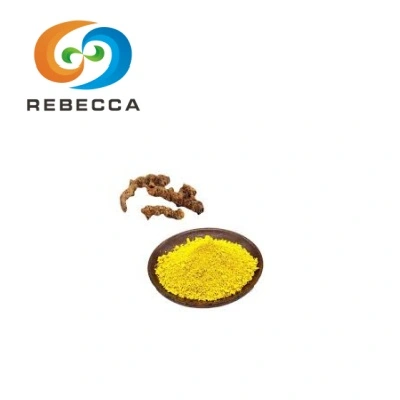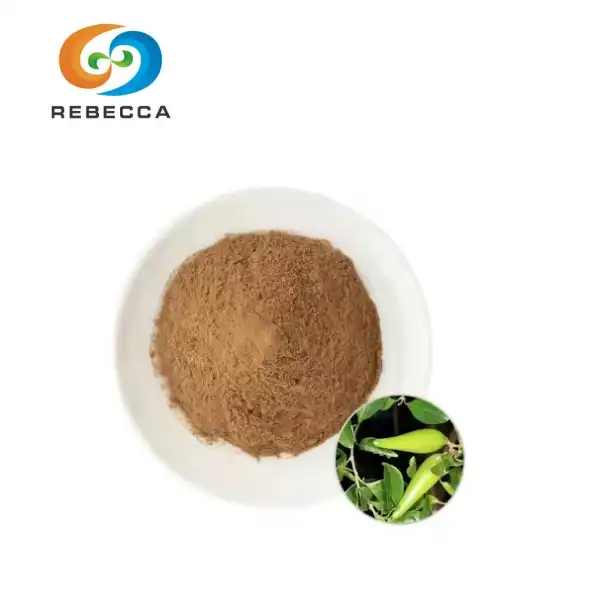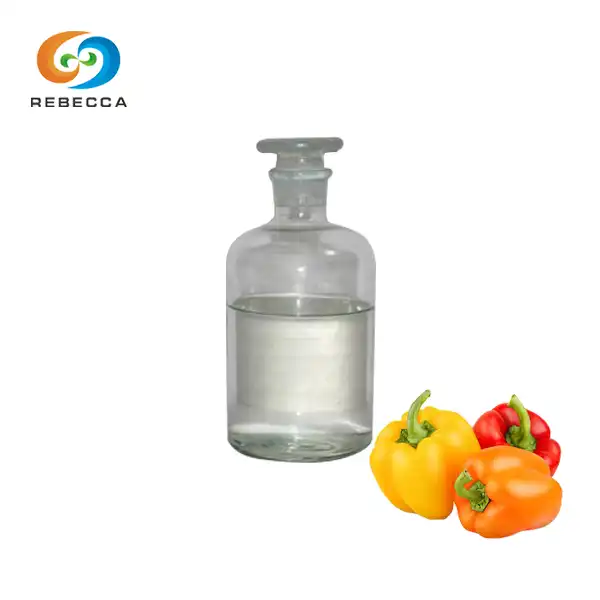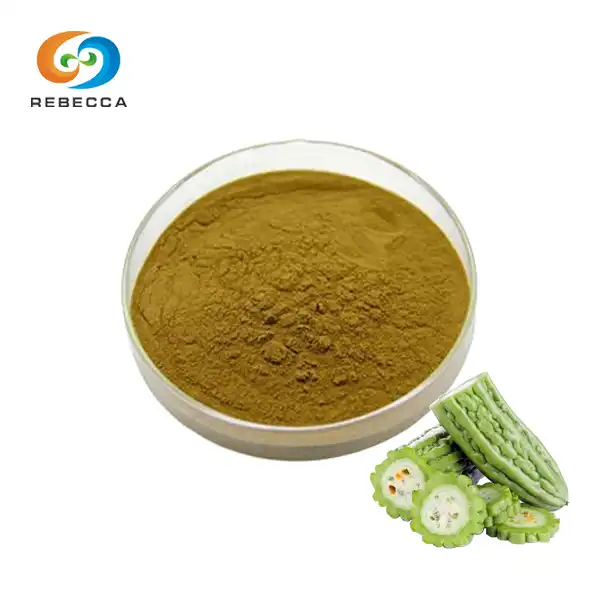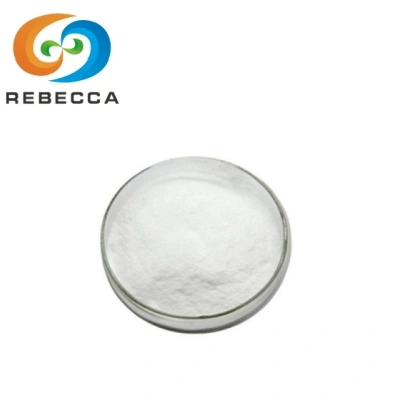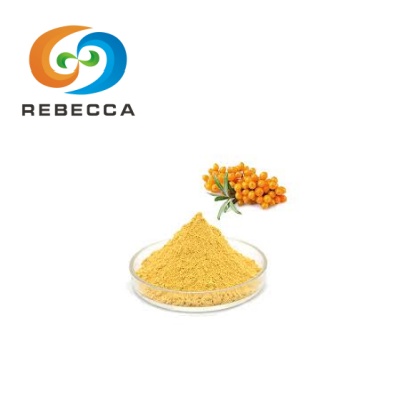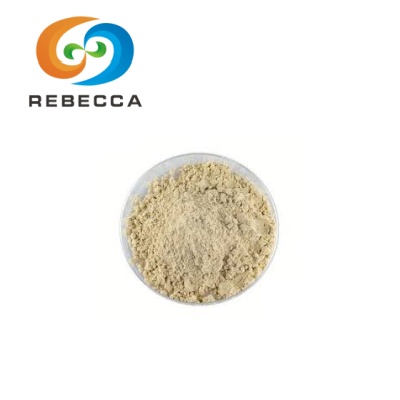What is a safe level of curcumin?
Determining a safe level of curcumin consumption is crucial for harnessing its potential health benefits while minimizing any risks. Typically, studies indicate that consuming between 500 and 2000 mg of curcumin each day is deemed safe for the majority of adults. Nevertheless, it's crucial to recognize that individual tolerance can differ.
The European Food Safety Authority (EFSA) has established an Acceptable Daily Intake (ADI) of 3 mg/kg body weight for curcumin. This translates to about 180 mg for a 60 kg adult. Research indicates that daily doses reaching 8 grams have been comfortably accepted in brief trials. Nevertheless, for extended use, it is generally advised to opt for smaller doses.
When using curcumin extract powder or curcumin 98% formulations, it's crucial to follow manufacturer guidelines and consult with a healthcare professional. Factors such as individual health status, medication interactions, and specific health goals should be considered when determining the optimal dosage. As with any supplement, starting with a lower dose and gradually increasing it while monitoring for any adverse effects is a prudent approach to finding your personal safe level of curcumin intake.
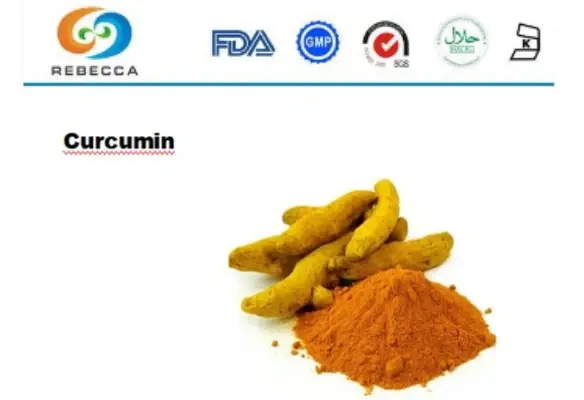
Curcumin Safety Profile
Nature Of Curcumin
Curcumin is the primary bioactive compound found in turmeric, a vibrant yellow spice derived from the Curcuma longa plant. This polyphenolic substance has garnered significant attention in the scientific community due to its potential health-promoting properties. Curcumin extract powder, often standardized to high concentrations such as curcumin 98%, is widely used in dietary supplements and functional foods.
Its molecular structure contributes to its diverse biological activities. It possesses antioxidant, anti-inflammatory, and even potential anti-cancer properties. These characteristics have made curcumin a subject of extensive research in various fields of medicine and nutrition.
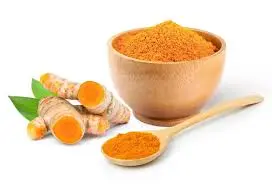
Safety Assessment
Evaluating the safety of curcumin involves considering both its natural occurrence in foods and its use as a concentrated supplement. Turmeric has been consumed for centuries in many cultures, particularly in South Asian cuisine, without significant adverse effects. This long history of use provides a foundation for its general safety in dietary amounts.
Nonetheless, for concentrated versions like curcumin powder or potent extracts, greater caution is warranted. Regulatory agencies like the FDA and EFSA have performed extensive reviews of curcumin's safety profile. These assessments consider aspects such as absorption, metabolism, and possible interactions with other compounds.
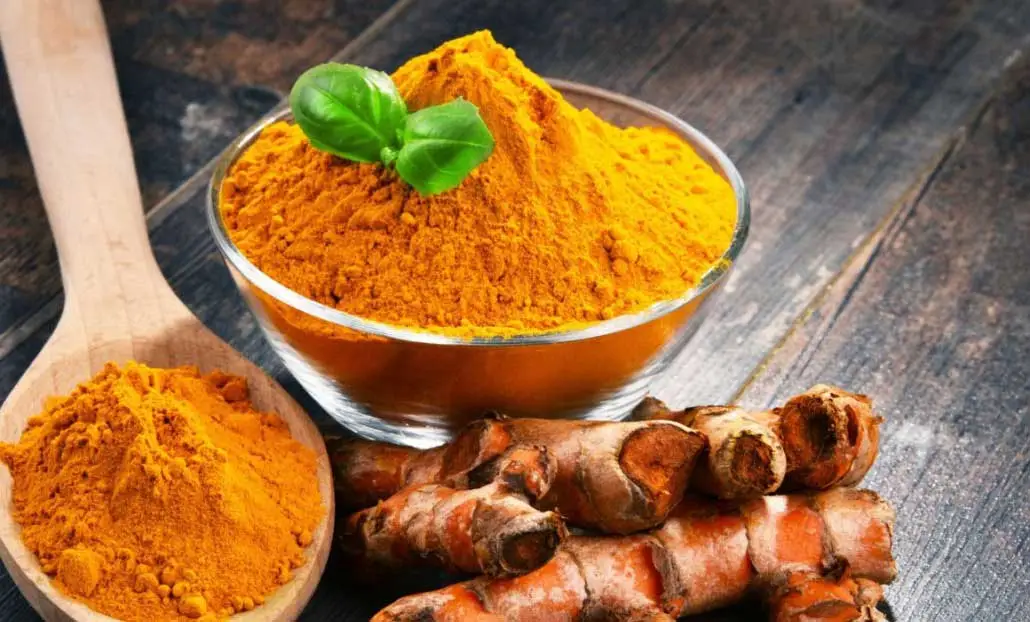
Determining Safe Dosage Levels
Clinical Studies And Dosage Recommendations
Numerous clinical studies have explored the efficacy and safety of curcumin at various dosage levels. These studies provide valuable insights into determining safe consumption levels. Research has shown that doses ranging from 500 mg to 2000 mg per day are generally well-tolerated in most individuals.
A systematic review of clinical trials found that doses up to 8 grams per day did not result in serious adverse effects in short-term use. However, it's important to note that such high doses are not typically recommended for long-term consumption. Most health practitioners suggest starting with lower doses, around 500 mg daily, and gradually increasing if needed.
Regulatory Guidelines
Regulatory bodies have established guidelines to ensure the safe use of curcumin in food and supplements. The Joint FAO/WHO Expert Committee on Food Additives (JECFA) has set an Acceptable Daily Intake (ADI) at 0-3 mg/kg body weight. This translates to approximately 180 mg for a 60 kg adult.
In the United States, curcumin is generally recognized as safe (GRAS) by the FDA for use as a food coloring and flavoring agent. However, the FDA has not established specific guidelines for curcumin as a dietary supplement. This underscores the importance of relying on scientific evidence and expert recommendations when determining appropriate dosages.

Tailoring Dosage To Individual Needs
While general guidelines provide a helpful framework, determining the optimal curcumin dosage often requires a personalized approach. Factors to consider include:
Health objectives: The intended use of curcumin supplementation, whether for general health maintenance or addressing specific health concerns, can influence the appropriate dosage.
Body weight and composition: As with many substances, body weight can affect the optimal dosage. Larger individuals may require higher doses to achieve the same effects.
Absorption and bioavailability: Different formulations have varying levels of bioavailability. Products enhanced with ingredients like piperine or utilizing advanced delivery systems may require lower doses to achieve the same effects as standard curcumin powder.
Potential Risks And Precautions
Side Effects And Interactions
While curcumin is generally considered safe, it's not without potential side effects, particularly at higher doses or with long-term use. Common side effects may include:
Gastrointestinal discomfort: Some individuals may experience nausea, diarrhea, or stomach upset.
Headaches: In rare cases, curcumin supplementation has been associated with headaches.
Skin reactions: Allergic reactions, though uncommon, can occur, manifesting as skin rashes or itching.
Curcumin may also interact with certain medications. It can potentially enhance the effects of blood thinners, leading to an increased risk of bleeding. Additionally, it may interfere with the absorption of iron and certain medications. Individuals taking any prescription medications should consult with their healthcare provider before starting curcumin supplementation.
Special Populations And Considerations
Certain groups may need to exercise additional caution when considering curcumin supplementation:
Pregnant and breastfeeding women: While curcumin in food amounts is generally considered safe during pregnancy, high-dose supplements should be avoided due to limited safety data.
Individuals with gallbladder issues: it may stimulate bile production, which could exacerbate gallbladder problems in susceptible individuals.
People with bleeding disorders: Due to its potential blood-thinning effects, individuals with bleeding disorders or those scheduled for surgery should use curcumin with caution.

Quality Control and Product Selection
Ensuring the safety and efficacy of curcumin supplementation begins with selecting high-quality products. When choosing curcumin extract powder or curcumin 98% formulations, consider the following:
Third-party testing: Look for products that have been independently tested for purity and potency.
Standardization: Opt for standardized extracts that guarantee a specific percentage of curcuminoids.
Reputable manufacturers: Choose products from established companies with a track record of quality and transparency.
Bioavailability enhancements: Consider formulations that include ingredients like piperine or use advanced delivery systems to improve absorption.
By thoughtfully evaluating these elements and seeking advice from medical experts, individuals can arrive at educated choices regarding the safe and beneficial application of curcumin supplements. Keep in mind that although curcumin presents encouraging health advantages, it is not a universal remedy; tailored guidance is frequently required to identify the most suitable and secure dosage for every person.
Why Choose Rebecca Bio-Tech As Your Curcumin 98% Supplier?
We cordially invite you to choose us as your turmeric supplier. As a professional curcumin manufacturer in China, we boast an annual production capacity of over 30,000 kgs, ensuring that we can meet your needs, no matter how large or small.
Our commitment extends beyond quantity to include quality. We maintain strict control over the stability of our product quality, which means you will receive consistently high-quality curcumin products. In a competitive market, we understand the importance of pricing, and thus, we offer the most competitive prices to ensure your business gains an edge in cost control.

By choosing us, you will benefit from:
1. Reliable Supply: Our robust production capabilities guarantee a stable supply of products, eliminating concerns about availability.
2. Exceptional Quality: Our continuous focus on product quality ensures that every batch you receive meets the highest standards.
3. Economical Pricing: Our pricing strategy is designed to save you costs, making you more competitive in the market.
We believe that by selecting us as your supplier, you will enjoy unparalleled value and support. Take action now, contact us, the company can be contacted at information@sxrebecca.com. and let's start a new chapter of cooperation together for a win-win future.
References
1. Hewlings SJ, Kalman DS. Curcumin: A Review of Its' Effects on Human Health. Foods. 2017;6(10):92.
2. Gupta SC, Patchva S, Aggarwal BB. Therapeutic Roles of Curcumin: Lessons Learned from Clinical Trials. AAPS J. 2013;15(1):195-218.
3. Stohs SJ, Chen O, Ray SD, Ji J, Bucci LR, Preuss HG. Highly Bioavailable Forms of Curcumin and Promising Avenues for Curcumin-Based Research and Application: A Review. Molecules. 2020;25(6):1397. 4. Soleimani V, Sahebkar A, Hosseinzadeh H. Turmeric (Curcuma longa) and its major constituent (curcumin) as nontoxic and safe substances: Review. Phytother Res. 2018;32(6):985-995.
5. European Food Safety Authority. Scientific Opinion on the re‐evaluation of curcumin (E 100) as a food additive. EFSA Journal. 2010;8(9):1679.
6. Kunnumakkara AB, Bordoloi D, Padmavathi G, et al. Curcumin, the golden nutraceutical: multitargeting for multiple chronic diseases. Br J Pharmacol. 2017;174(11):1325-1348.
